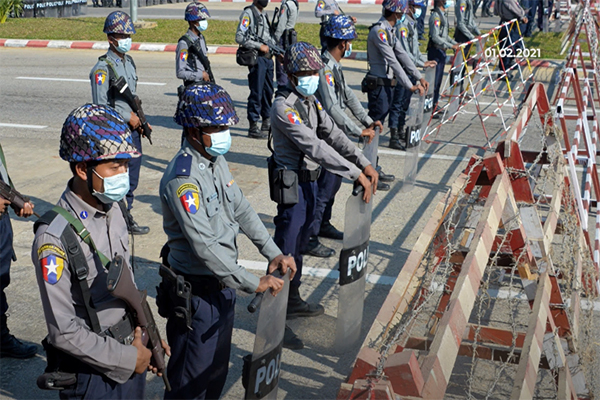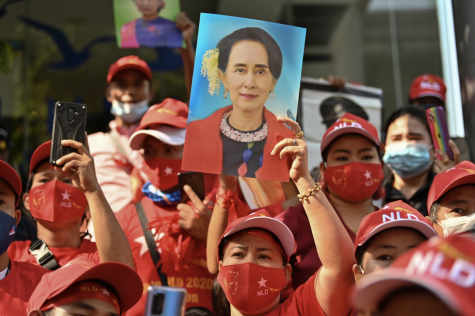Update: The Coup in Myanmar
A country plagued by democratic instability and claims of discrimination against minorities

Myanmar’s newly elected government was overthrown in a coup d’état on February 1st, and the country’s military – known as the Tatmadaw – has since taken control. Power has been transferred to the head of Myanmar’s armed forces, Min Aung Hlaing. Since the coup, protesters have continued to push back against the sudden takeover, and the military has continued to crackdown against dissidents. Aung San Suu Kyi, the leader of Myanmar’s democratic party and the National League for Democracy (NLD), won re-election in early November. She has long been seen as an icon for democracy around the world and was awarded a Nobel Peace Prize in 1991 for her efforts. The military was backing the main opposition party to the NLD, the Union Solidarity and Development Party (USDP). After Suu Kyi and the NLD handily won re-election, the military alleged widespread fraud in the results, claiming 10.5 million cases of fraud. Despite Myanmar’s election commission finding no evidence to corroborate these claims, the Tatmadaw demanded that the election be held again. On February 1st, the Tatmadaw declared the results of the elections illegitimate and seized control of the government as a new parliament was expected to assume office. They have detained Suu Kyi, along with other members of the NLD. Suu Kyi is charged with possessing illegal walkie-talkies and publishing documents that may cause fear or alarm. The military has declared a yearlong state of emergency and has promised to hold a “free and fair” election once the state of emergency is over.

A group representing the NLD, The Committee for Representing Pyidaungsu Hluttaw (CRPH), alleges that they have found over 180,000 pieces of evidence detailing human rights abuses by Myanmar’s military. They say that they have discussed the abuses with the United Nations on Wednesday. They believe the military has illegally executed over 540 people. The country’s de facto government, made up of former and current Tatmadaw officials, has continued to threaten people who protest against them, including journalists, celebrities, and children who are all currently in custody by the military and held at undisclosed locations. At least 43 children have been killed since the coup began.
Current protests in Myanmar following the coup are the largest since 2007. The military has sought to curb the demonstrations, issuing curfews and mass gathering restrictions. In addition, they have blocked internet and television access throughout the country, prompting some protesters to print pamphlets to spread the news. On March 27th, 114 people were killed by the Tatmadaw, the deadliest day since the coup began. International condemnation of the takeover has been swift. The U.S., U.K., and E.U. have all imposed sanctions on military officials. The United Nations Security Council has also discussed the situation in Myanmar, but the U.N. has not imposed sanctions on Myanmar’s military. Indonesia is planning to coordinate a regional plan to ease the situation.
The government takeover in Myanmar is all too common for a country plagued by democratic instability and claims of discrimination against minorities like the Rohingya ethnic group. The country has never had a sense of stability. The country gained independence from Britain in 1948 and was ruled by the military from 1962 until 2011. After receiving harsh blowback from countries all across the world, it remains to be seen how the situation on the ground will continue to unfold.

Uzair Hammad '24 has been a writer and editor for The Advocate for four years, finally ascending to the fabled position of editor-in-chief. In his free...






